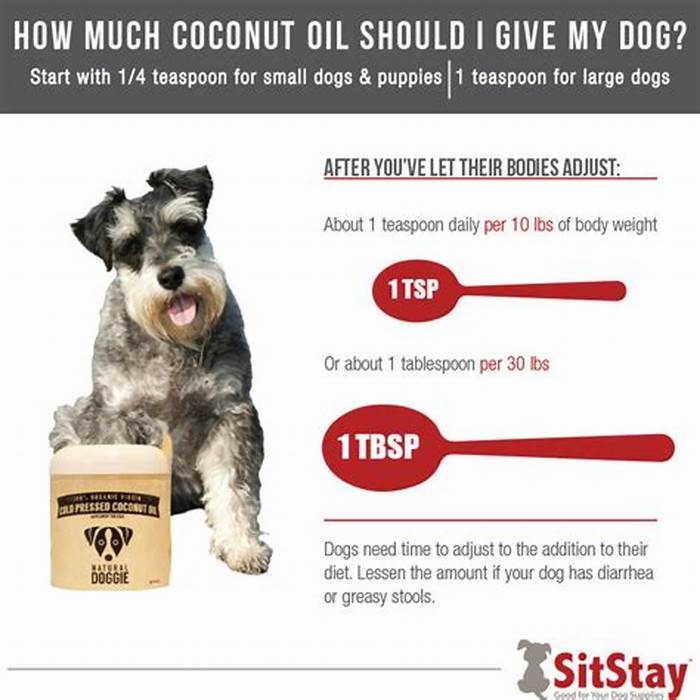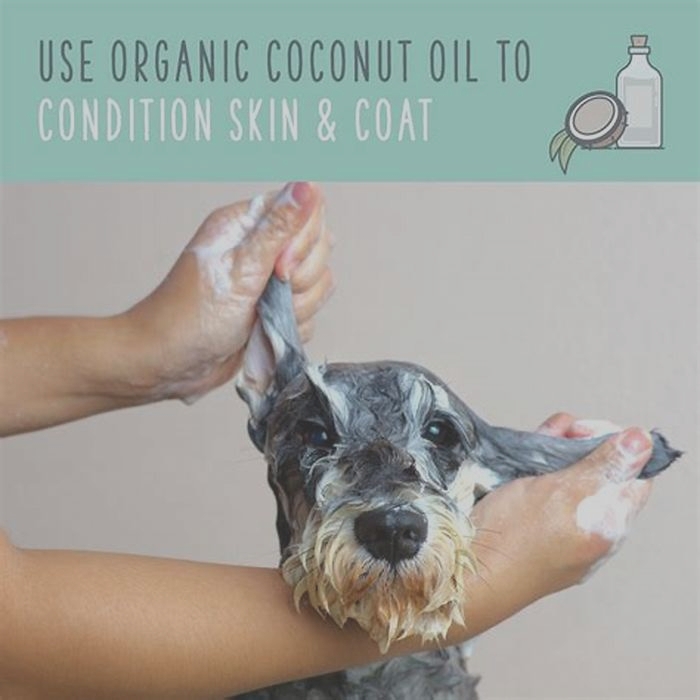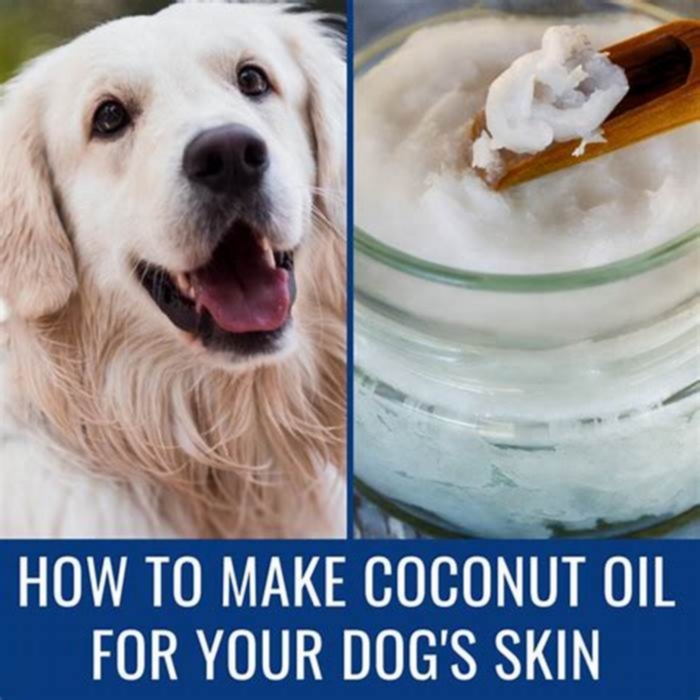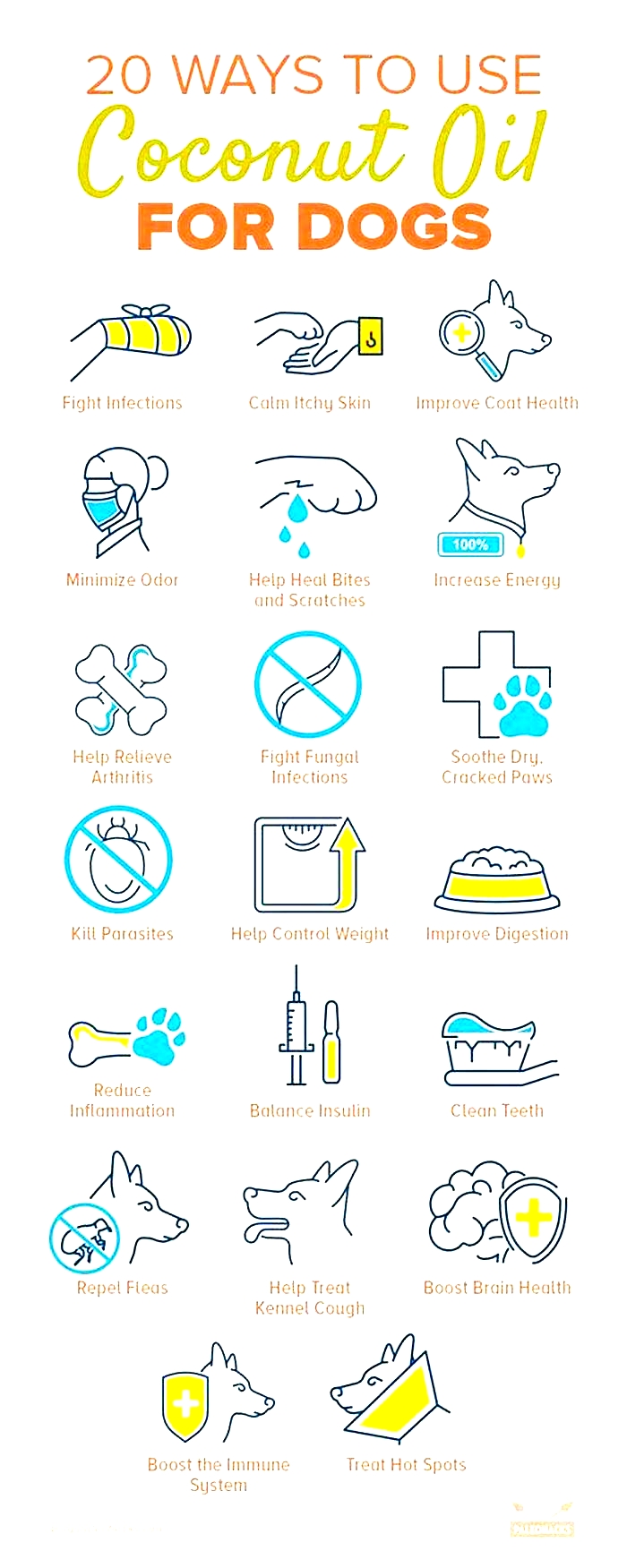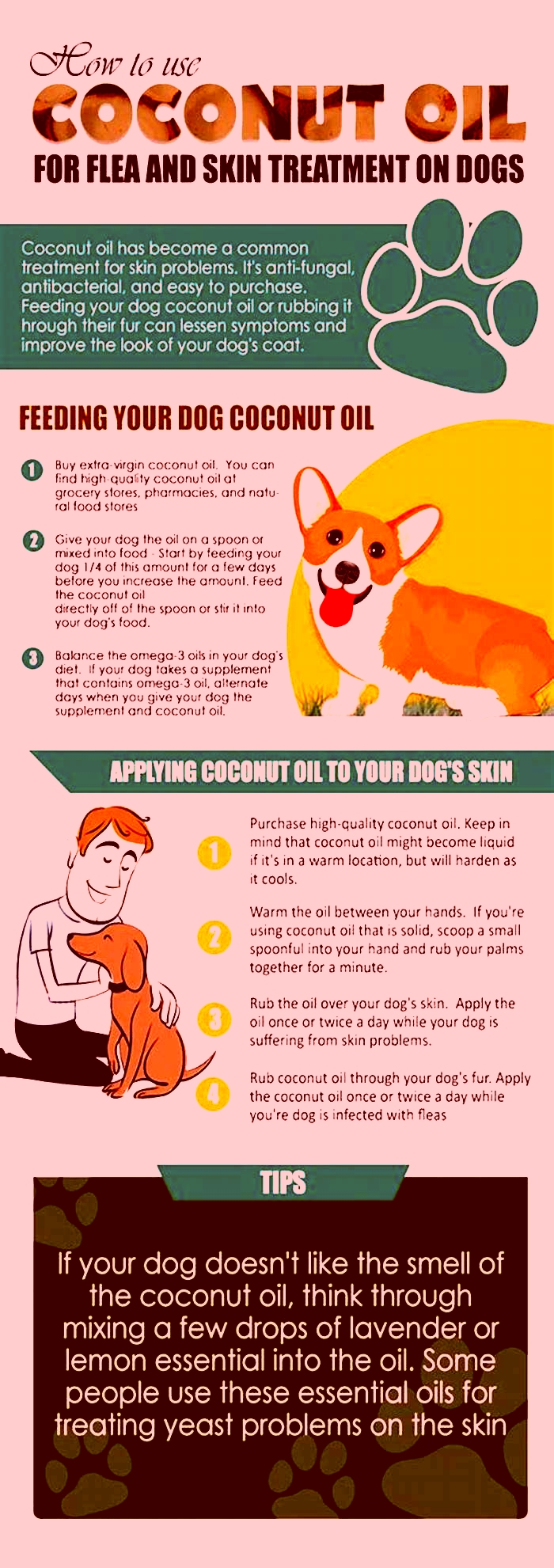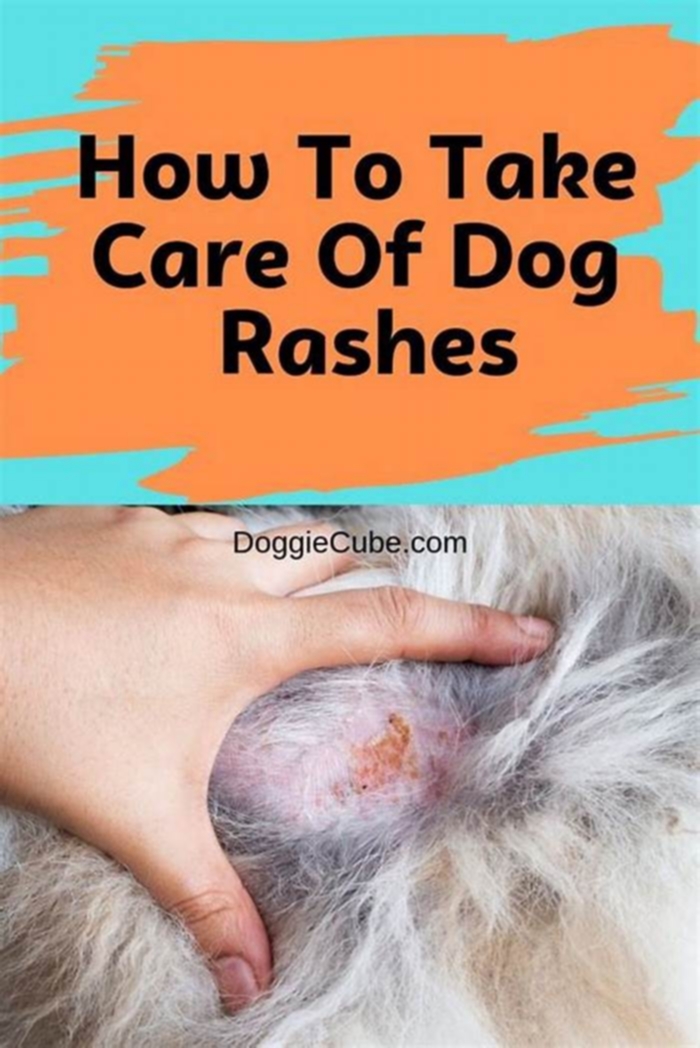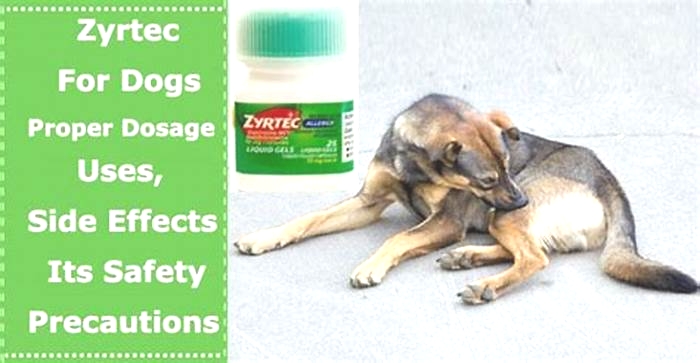Should I give my dog coconut oil or salmon oil
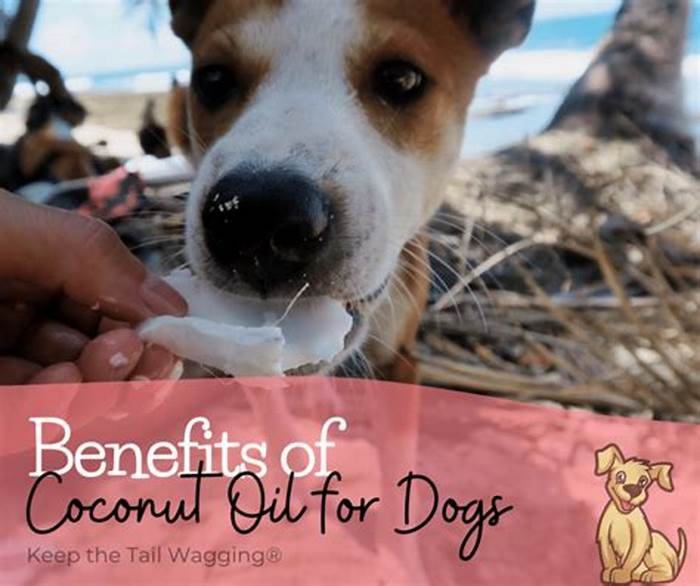
Coconut Oil vs Salmon Oil For Dogs: The 5 Things You Need to Know
Coconut oil vs. salmon oil: whats the difference?
Both are excellent supplements for your pet and bring many health benefits.
While salmon oil mainly offers important anti-inflammatory properties, coconut oil is excellent for combating viral, bacterial, and parasitic diseases.
So which oil should you pick for your four-legged friend?
Lets explore the main benefits of coconut and salmon oil where well cover off on the 5 key comparisons between these popular oil supplements for dogs!
Jump to:
What Is Coconut Oil?
Recently coconut oil has become a very popular ingredient in almost every household.
However, there is a huge debate about whether this supplement is healthy or not.
Coconut oil is extracted from coconut meat. Its an excellent source of medium-chain fatty acids (MCFAs), which is 80-90% saturated fat. The main negative to embracing coconut oil on a regular basis is this type of fatty acids are very calorific. So, use in moderation to avoid a porky pooch!
These MCFAs include:
- Lauric acid
- Caprylic acid
- Capric acid
Out of these 3 MCFAs, lauric acid is the most important due to its antibacterial properties. These acids are easily converted into energy, so dont be surprised if you see your lazy dog jumping around after consumption.
Since the fats are made of single carbon bonds, the oil is not prone to oxidation or free-radical formation.
Fun fact: Coconut oil does not need to be stored in a fridge. It shows no signs of rancidity up to 3 years of storage.
Overall, coconut oil is effective when used against:
- Bacteria
- Viruses
- Yeasts
- Fungi
- Parasites
Additionally, coconut oil has been proven as a strong metabolism booster and antioxidant. Therefore, regular usage of coconut oil might lead to better cellular function, immune system, and normal brain function.
Although many nutritionists claim that coconut oil can improve heart health, I would check twice with a vet and confirm whether it is safe for your pet.
According to some studies, a high intake of coconut oil might increase total cholesterol and triglycerides. However, it all depends on the dose. Some studies say completely the opposite.
Our advice: Before purchasing coconut oil, consult with your vet and check if your pet can safely consume coconut oil
On top of the many health benefits, coconut oil can improve the coat and skin, improve digestion, and is well-known protector against fleas and ticks.
Additionally,coconut oil can reduce allergic reactions, edema, insect bites, and wounds.
Interesting fact: Coconut oil is sometimes used for treating Irritable Bowel Syndrome
What Is Salmon Oil?
Salmon oil, like coconut oil, is associated with many health benefits for dogs and cats.
Where it quickly differs versus coconut oil is that it consists of super healthy fatty acids and Omega 3 polyunsaturated fats.
Salmon oil consists of 3 types of Omega 3s, including:
- EPA (eicosapentaenoic acid)
- DHA (docosahexaenoic acid)
- ALA (alpha lipoic acid).
Since salmon oil consists of double carbon bonds, it is more unstable and prone to oxidation. In simple terms, that means salmon oil can more easily go off!
Thats why its very important to store your salmon oil properly. The product is also light and heat sensitive so keep it in a cool dark place, like a cupboard.
Did you know? Brilliant Salmon Oil uses the freshest salmon offcuts which means it has a market-leading shelf life of 3.5 years! Its also contained in a clear UV-protected bottle for safe storage.
Salmon oil has many benefits, including:
- Anti-inflammatory effects
- Keeps healthy cardiovascular system
- Improves brain function and eye function
- Improves mobility
- Helps give your dog a shiny coat and softer paws
It is normal that our pets sometimes dont get the proper nutrition through their food. But this does not have to be the end of the matter.
You can always improve your dogs nutrition with some supplements. For example, with high-quality salmon oil, your dog can enjoy all the benefits of Omega fatty acids.
Brilliant Salmon Oil is made from nutritious and super fresh salmon offcuts and your pet can enjoy the taste of 100% pure salmon oil.
This human-grade and nutritious food topper is enjoyed by many pets worldwide. Each bottle of this salmon oil is uniquely made with all 21 omegas and fatty acids which are found in salmon, not just EPA, DPA and DHA.
5 Key Comparisons of Coconut Oil vs Salmon Oil for Dogs
| Feature | Salmon Oil | Coconut Oil |
| Fatty Acids | Long-chain omega-3s | Medium-chain triglycerides |
| Omega 3 Content | Rich | None |
| Flavour | Mild salmon/fish flavour (liked by dogs) | Strong coconut flavour (neutral/negative flavour for dogs |
| Oxidation | Prone to oxidation if stored/produced incorrectly | Not prone to oxidation |
| Digestibility | Highly digestible | Highly digestible but can cause laxative effects |
#1 Fatty Acids
Coconut oil consists of medium-chain triglycerides (mainly lauric acid), while salmon oil consists of long-chain Omega 3s.
While lauric acid has perfect antimicrobial properties, the long-chain fatty acids from salmon oil will provide your dog with the essential Omega 3s. These fatty acids are not produced by animals, so your dog will indeed benefit from the salmon oil.
Important note: Both oils are beneficial for dogs, and your choice should be based on your dogs needs.
#2 Omega 3 Content
Coconut oil primarily provides easily digestible energy and antimicrobial properties. However, it doesnt contain any omegas or fatty acids.
Salmon oil is the solution if you want to add Omega 3s to your pets diet. Brilliant Salmon oil is the perfect choice, too. It not only contains Omega 3, but also Omega 6, 9 and all other fatty acids found in fresh salmon!
EPA and DHA are the main sources of Omega 3s in salmon oil. They provide a range of benefits, including:
- Reducing inflammation
- Better coat
- Increased energy
- Soft paws
#3 Flavor
Coconut and salmon oils provide two different flavors. Coconut oil offers a mild flavor that many dogs find acceptable but it does have that distinct coconut taste.
In contrast, salmon oil has a mild fishy flavor. Many pet parents that struggle with their pets appetite use salmon oil to improve the taste of their dogs food.
Top tip: Introduce your pet gradually to new food, no matter what the food is. This way, you will avoid an upset stomach or a surprise allergic reaction.
#4 Oxidation
Both oils can undergo an oxidation process, depending on their quality.
Salmon oil is generally more prone to oxidation and has a shorter shelf life. But, coconut oil can also undergo oxidation if it is low quality or not stored properly.
Side note: Follow our instructions for storing, and you will not face any issues with oxidation. Moreover, Brilliants incredible 3.5 year shelf life means youll never have a problem with rancidity or other issues.
#5 Digestibility
Generally, both coconut and salmon oil are highly digestible.
But, coconut oil can act as a laxative if consumed excessively. The main symptoms are diarrhea, loose stool, vomiting, or pancreatitis.
On the other side, salmon oil is also highly digestible but doesnt show any significant side effects regarding digestibility. After the long-chain Omega 3s are broken down, the salmon oil is easily absorbed and used properly by the dogs body.
Coconut Oil vs Salmon Oil: The Decision Is Yours!
No matter what your pick is, just ensure that the oil you purchase is of high quality.
Brilliant Salmon Oil is the perfect product for your pet to enjoy all Omega 3s. It is 100 % pure Norwegian salmon oil, grown using non-GMO feed, and no antibiotics are used ever.
Many pet parents across the world are enjoying the benefits of Brilliant Salmon Oil. So what are you waiting for!
Fish Oil for Dogs
|
Fish oil is one of the best supplements to add to your dogs diet. Fish oil supports your dogs heart health, promotes a silky coat, reduces itchy and flaky skin, and can help relieve allergies and joint pain. It can even help strengthen a dogs immune system and could help them fight canine cancer.
All of this is because fish oil contains omega-3 fatty acids, an essential good type of fat that helps your dogs body and brain. Like humans, dogs cant produce omega-3 fatty acids on their own and must get them from their diet. If youre considering including fish oil as a part ofyour dogs nutritional routine, heres what you need to know.
What Are Fatty Acids Found in Fish Oil?
There are four types of dietary fats: trans fats, saturated fats, monounsaturated fats, and polyunsaturated fats. Omega fatty acids, found in polyunsaturated fats, create important hormones that regulate blood flow and inflammation. However, they arent found naturally in the body. Omega-3 is found primarily in cold-water fish, shellfish, plant and nut oils, and flaxseed. But, your dog needs omega-3 in their diet for several reasons.
Omega-3 also helps balance out omega-6 fatty acids, commonly found in processed foods and most grains. Since many dog food manufacturers use meat from corn-fed animals or refined oil (which are high in omega-6), dogs often have an overabundance of omega-6 fatty acids in their diet. Your dog ends up with too much omega-6 and not nearly enough omega-3 fatty acids. Humans (and dogs) need omega-6 fatty acids, but our modern diet often has too many. The body needs both in proper balance, and the same is true for dogs.
Why Should I Give My Dog Fish Oil?
Fish oil is a good way to give your four-legged companion the omega-3 fatty acids they need. Depending on their general health and diet, fish oil supplements may become part of a long-term plan. Or, they may just provide a temporary nutritional boost to your dogs diet.
Another benefit of fish oil is that it helps dogs across the span of their lifetimes. DHA, a component in omega-3 fatty acid, aids in the proper brain and eye development of puppies. DHA may also improve cognitive function in older dogs dealing with canine cognitive dysfunction. Research has shown that omega-3 fatty acids can help to treatcanine arthritisand chronic kidney disease.
As with anything affecting your dogs health, talk to your veterinarian about supplementing your dogs diet with fish oils before proceeding.
How Do I Choose a Good Fish Oil for My Dog?
There are three types of fish oil on the market:
- Natural triglyceride oil, which is the most natural and easiest to absorb. However, because it isnt purified, it may contain contaminants
- Ethyl ester oil is concentrated and distilled, removing impurities. Think of it as semi-natural with high levels of important components of omega-3: docosahexaenoic acid (DHA) and eicosapentaenoic acid (EPA)
- Synthetic triglyceride oil, which as the name says, is synthetic and absorbs the least easily of the three
Before choosing which type of fish oil to feed your dog, consider their breed, size, weight, and overall health. Speak with your veterinarian first as well. Over the long term, using fish oil as a supplement to a grain-based diet may deplete vitamin E, so some dogs may also ultimately require that supplement too.


TerraMax Pro Premium Liquid Omega-3 Fish Oil
The all-natural TerraMax fish oil liquid is appropriate for dogs and doesnt contain any artificial ingredients. Its guaranteed to contain at least 800 mg EPA and 525 mg DHA per serving (which support skin, fur, joints, and overall health), without the strong scent of fish. Most reviews are positive, reporting that the oil is worth the cost and works well for pets dealing with joint pain and itchy skin.


Nordic Naturals Omega 3 Pet
Made in the USA, this Nordic Naturals supplement is a solid source of EPA and DHA and perfect for small breed dogs. Most reviews are positive and users report that the oil leaves their pets coats silky smooth.


Nordic Naturals Omega 3 Pet Soft Gels
If youd rather give your pup a capsule than mix liquid into their food, this is the solution for you. This supplement is made with ingredients caught from the cleanest waters. Nordic Naturals are produced in true triglyceride form to ensure optimal absorption and results. The gels are recommended by veterinarians for dogs of all sizes and breeds. Reviewers also indicate that the gels are effective and less messy.
Care and Storage of Fish Oil
Protecting fish oil from heat, light, and air is important. Buy your fish oil in dark bottles and store it in the refrigerator. It can become rancid since they are susceptible to oxidation, so make sure to throw it away if it has an off odor.
Rather than following dosage guidelines on the package, ask your vet how much fish oil is appropriate for your dog. Make sure the amount of fish oil you give them is appropriate for their size, weight, and age.
Its difficult to feed your dog a completely natural diet. With so many processed ingredients in some of todays dog food, fish oil may be just the supplement to their diet needs. Lastly, be sure to ask your vet for advice before starting your dog on supplements, and purchase only quality products if thats the route you choose.

